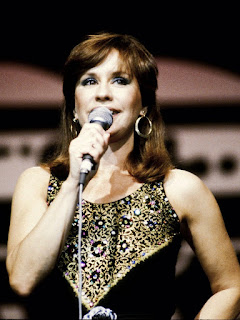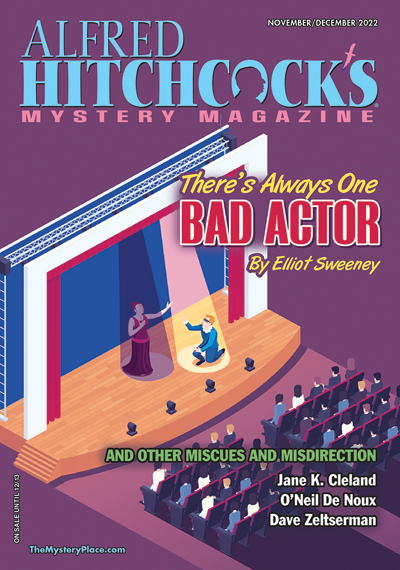by Steve Liskow
Two weeks ago, I discussed the singles that nourished my summer of 1966. 1967 was another good year for pop, but we didn't notice how things were changing until two or three years later.
In mystery terms, it was like moving from cozies to noir. We didn't see it at the time, but by 1969, FM radio gained more traction and played longer album cuts while AM singles began to lose their influence. The whole phenomenon was like clues hidden in a complex golden age mystery plot.
The top SELLING albums of 1967 were overwhelmingly pop. The Monkees' first four LPs topped Billboard's chart for 28 weeks during that year, and their first two albums ruled from New Year's Day into June. Herb Alpert and the TJ brass were up there, along with Diana Ross & The Supremes, The Temptations, The Four Tops, and the soundtrack for The Sound of Music. Frank Sinatra, Dean Martin, Andy Williams and Petula Clark all had big albums, too, and Peter, Paul & Mary's Album 1700 was required listening for all the folkies in my dorm.
Sergeant Pepper's Lonely Hearts Club Band rode the top of the charts from early July to October, and we didn't appreciate how it would change the landscape. Other bands were experimenting, too, both musically and chemically, and their work burrowed into our consciousness along with the Fab Four.
In January, the Doors released their first LP. It didn't sell until Elektra released a shorter single version of "Light My Fire" that got lots of AM airplay. It even got banned in Detroit during the July riot. This may have been the beginning of bands releasing a single and a different version of the same song with a long instrumental break on an album. The San Francisco bands, who began to make their presence known in '67, played long breaks for the dancers at the clubs, and it began to catch on.
That same January, Cream released their first LP, Fresh Cream.
They put out
Disraeli Gears in December, and by then the "Clapton is God" buzz was almost as deafening as their Marshall stacks. They were British, but echoed the San Francisco trend to long instrumental breaks (Jack Bruce even said that started when they played the Fillmore West). When I saw them live in '68, they filled a 75-minute set with five songs.
Jefferson Airplane gave us Surrealistic Pillow in February, and it charted in March. Their first album was a competent collection of mostly covers before Grace Slick (Vocals) and Spencer Dryden (Formerly the drummer with the Peanut Butter Conspiracy) joined on this record, for which band members wrote all the songs. Those songs ranged from folk-rock to full-bore psychedelia (White Rabbit, 3/5 Mile in Ten Seconds) and it may have been the rest of the country's introduction to Haight Ashbury chic. Only weeks later, the Grateful Dead released their first album. It collected covers, too, but two of them featured extended jams like "Light My Fire." The Airplane LP had two hit singles, so it got AM attention. Not so the Dead.
Buffalo Springfield's first album came out in December '66, but Atlantic added their (only) hit single "For What It's Worth" and re-released the record in May, about the same time the band appeared on The Smothers Brothers TV show. FWIW was the band's big hit, but "Sit Down, I Think I Love You" made Billboard's top 20 for the now-forgotten Mojo Men, and several other songs deserve more respect. The Springfield was one of the great coulda-shoulds-woulda bands that didn't make it, but Stephen Stills, Neil Young, Richie Furay and Jim Messina all went on to produce more fine work. Like the Airplane, the Springfield record was a combination or rock, country, folk, and ballads. Nobody was looking at a unified concept for an album...yet.
In June, the world turned upside-down. The Beatles unleashed Sergeant Pepper, and AM radio stations played every song because EMI didn't release a single. This may have been the beginning of album-oriented programming.
Only weeks later, Moby Grape appeared on the scene. Their album also has folkish ballads, countryish twang and petal-to-the-metal rock and roll. All five members sang, composed, and played like monsters. They recorded the entire album, including overdubs, in five days of studio time. Guitarist Skip Spence played drums on the first Airplane LP, but he was a guitarist at heart, and here he was in his element. The Grape is another great "might-have-been" band, but Columbia released five singles on the same day, cancelling each other out and offending the hippy following. Bad drugs and bad karma haunted the rest of the band's short career.
The Association gave us Insight Out in June, too. It had two legit singles, "Never My Love" and "Windy," but the song everyone remembers is "Requiem for the Masses," the choral anti-war song. I saw the band perform it at Yale Bowl a year later, all the stadium lights turned off as Terry Kirkman played the horn solo at the end. It gave me chills. This is the beginning of the end of albums with lots of singles.
To finish off the Summer of Love, Jimi Hendrix produced Are You Experienced? in September. Like the Beatles, Hendrix forced the engineers to dub, overdub, and re-overdub eight or twelve guitar lines onto four-channel boards. The recording industry had to make technical strides to accommodate the new music, and eight, twelve, and even sixteen-channel boards became common, the biggest advance since Les Paul perfected tape delay in the early 50s. Hendrix gave us a hybrid of blues, jazz, rock, and everything else combined with effects pedals and volume like the eruption of Krakatoa. This record did release a couple of singles in England, where it was recorded, but American stations played every song, especially late at night.

Speaking of Krakatoa, The Who released The Who Sell Out in December. It's a full-concept album (Their next release will be Tommy) with tongue-in-cheek commercials mixed among terrific songs. It's my favorite Who album, especially in the expanded CD. Townshend comes into his own as a lyricist and composer on this one, and it features "I Can See For Miles" with the all-out volume assault that's been the band's trademark forever...and the reason Townshend still suffers from tinnitus.
December gave us the Rolling Stones' Their Satanic Majesties Request, their most psychedelic work. It had a three-dimensional cover and no singles, and it proved Mick and Keith could do far-out, too. Then they went back to blues-rooted rock for their best work over the next several years.
December also saw Paul Butterfield reinvent himself. The Resurrection of Pigboy Crabshaw has Elvin Bishop replacing the departed Michael Bloomfield on lead guitar, and it's Butterfield's first record with a horn section. He's learning to share harmonica solo duties with the saxes and trumpet, and it works. Nobody else I know owns this record, but it's one of many resons Butterfield is in the Rock & Roll Hall of Fame. Al Kooper was turning to horns at the same time with Blood Sweat & Tears, and Bloomfield left Butterfield to form his own horn band, The Electric Flag.
Sergeant Pepper is the only album here to top the charts. Several of the others barely dented the basement, but their influence was huge. Think of what will emerge in the next three years:
Led Zeppelin, Yes, Santana, Quicksilver Messenger Service, Big Brother & The Holding Company, Chicago Transit Authority, Bitches Brew...
Not so cozy anymore.




































